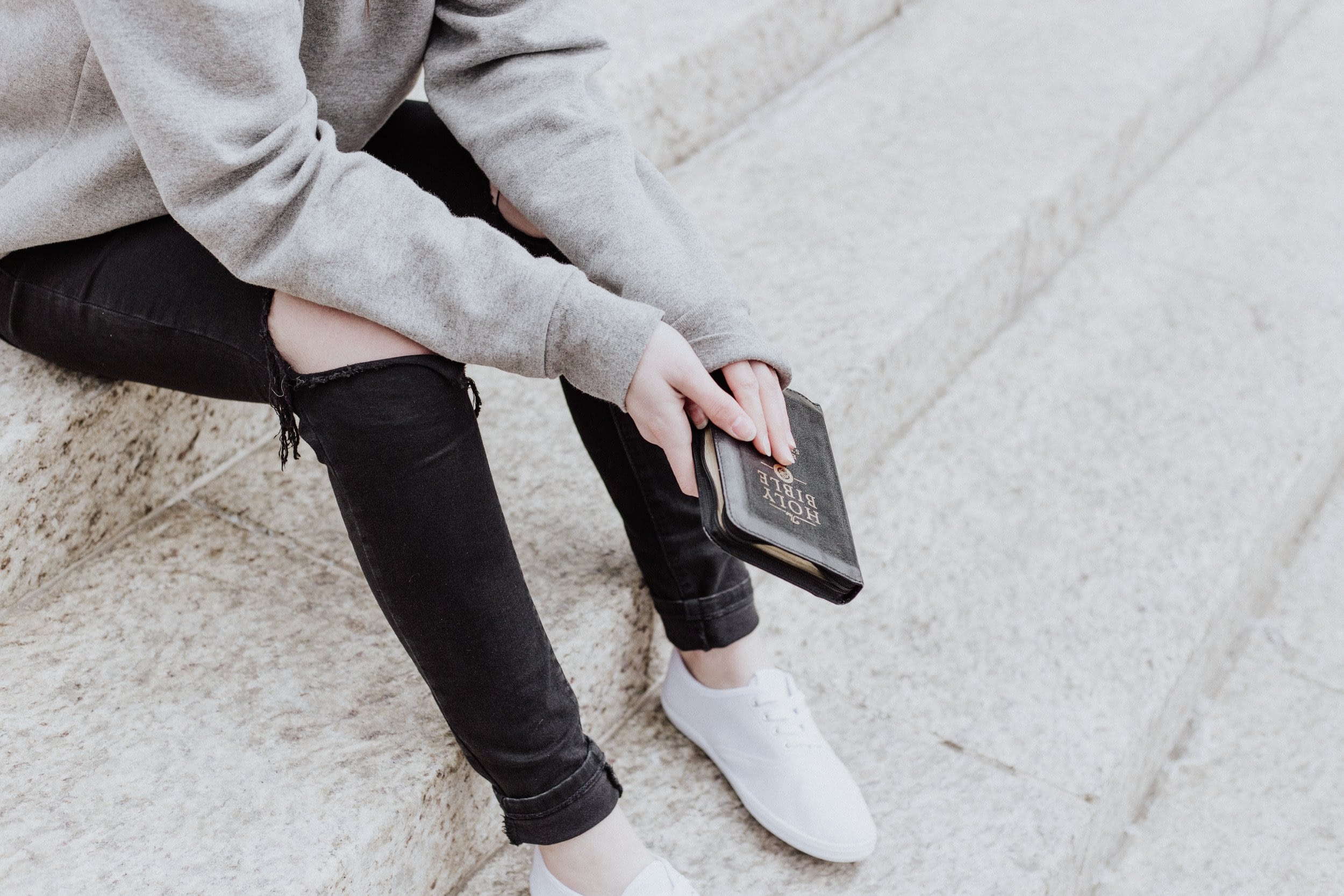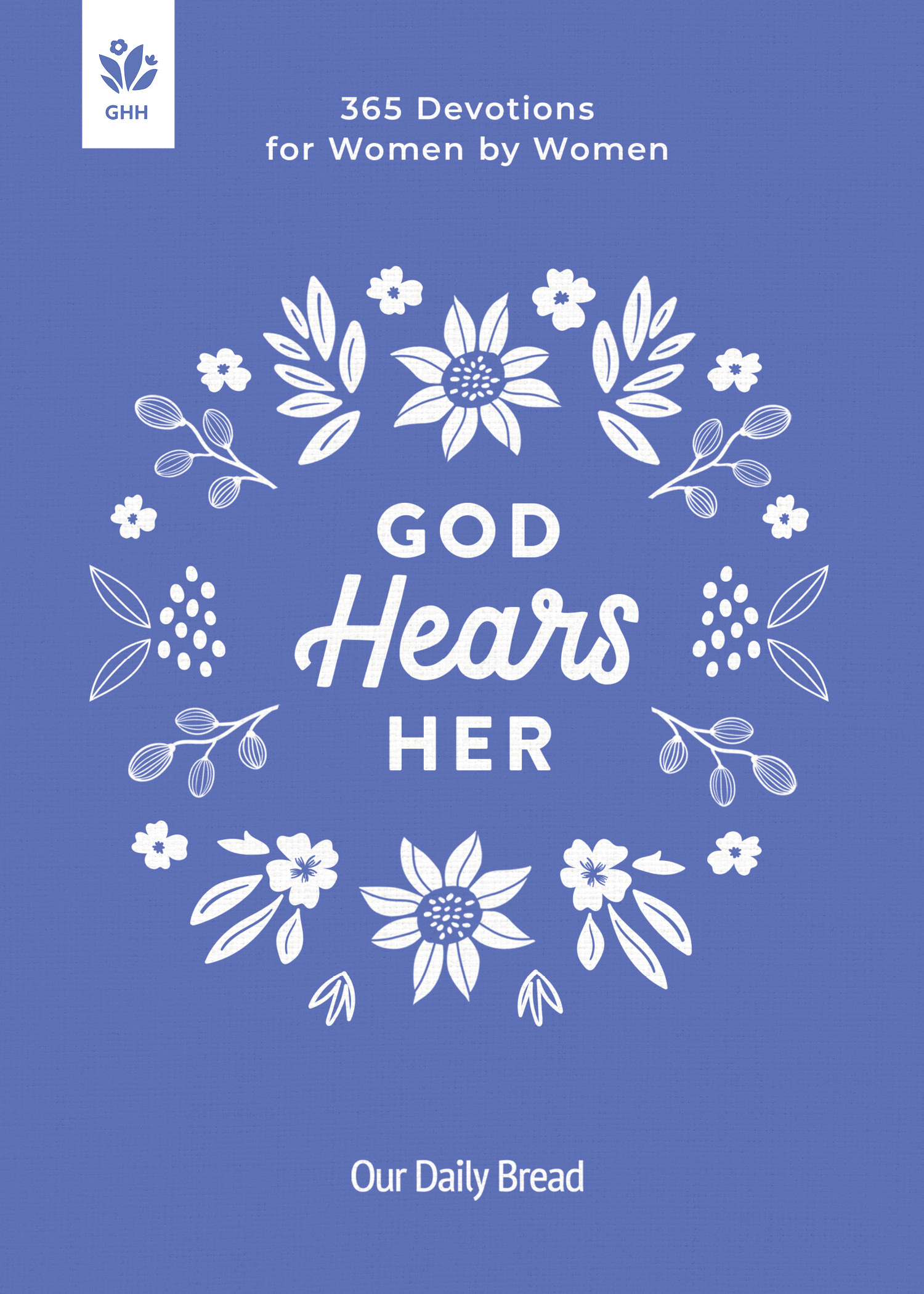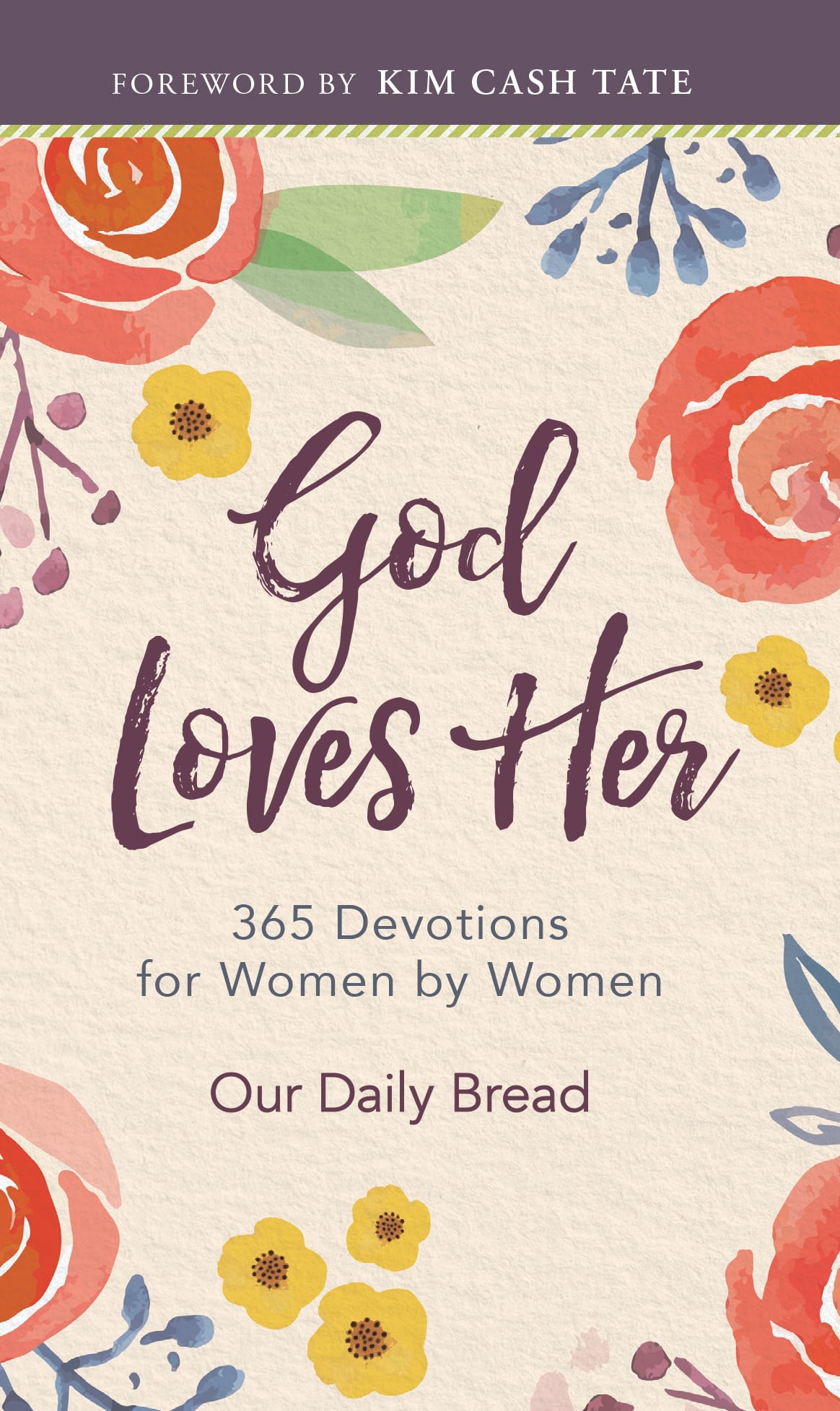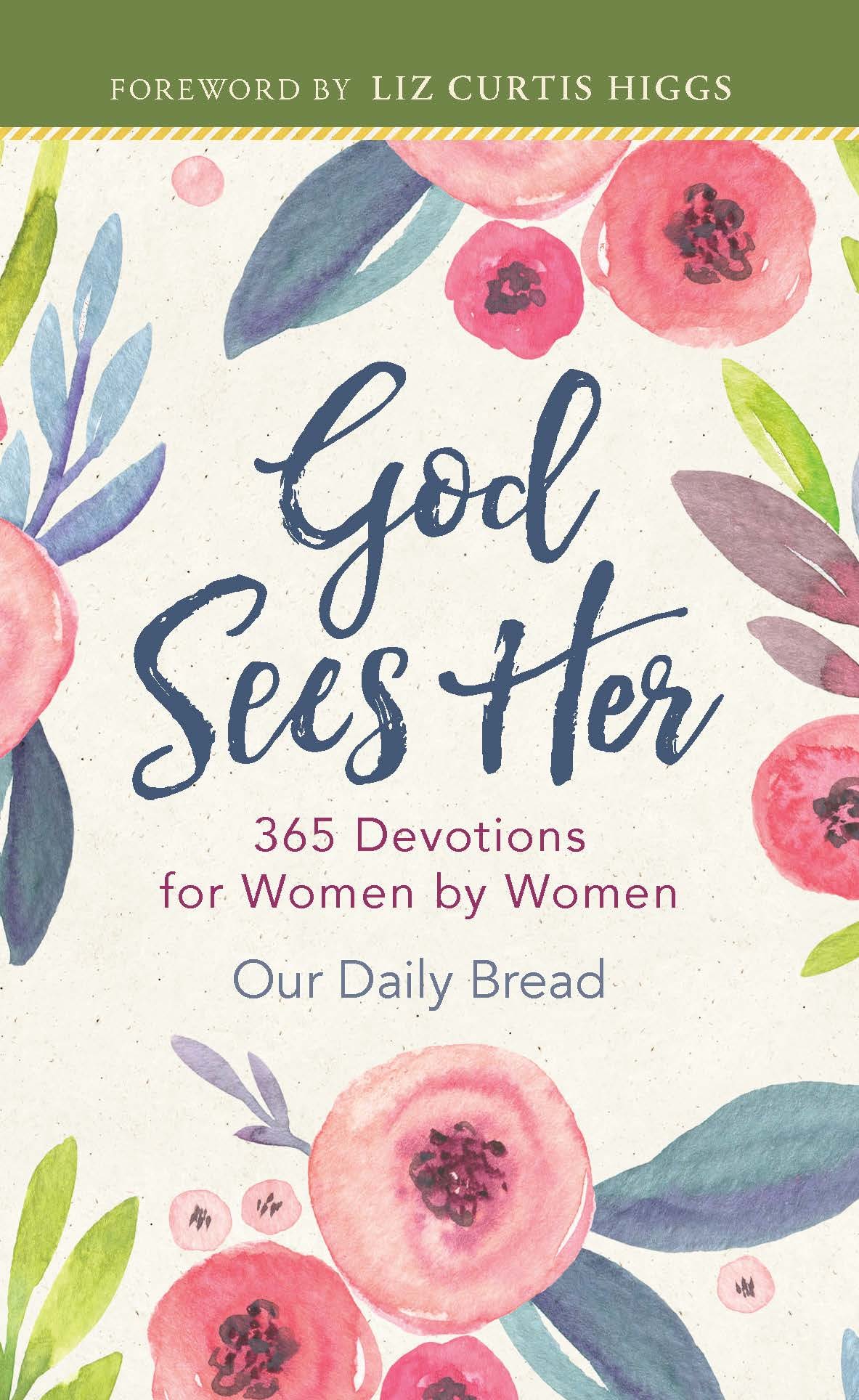An incomplete list of the sleep aids you might find on my bedside table at any given moment:
-
Melatonin gummies
-
a tea cup
-
lavender linen spray
-
NyQuil
-
a white-noise machine
-
an air-filtration machine
-
a glass of water
-
headphones to play dull podcasts
-
Kindle to read dull books
And still, more and more often in the past few years, nights find me staring at the ceiling trying to say the alphabet backwards, hoping that will finally do the trick.
Maybe you’ve felt it too. I know I’m not alone—last year a friend gave me a memoir about insomnia, The Shapeless Unease: A Year of Not Sleeping. Around the same time, a book called Why We Can’t Sleep declared insomnia and anxiety part of the new “women’s mid-life crisis.”
Sometimes I think back to those days of early motherhood when I was so exhausted that nothing could keep me awake. I remember the soft cheeks of my babies, their milk-drunk faces, their bodies heavy in my arms. And I wish I could be a milk-drunk baby, so peaceful. I wish someone would sing me a lullaby.
One of my favorite psalms is a lullaby of a sort. In Psalm 131, the psalmist describes rest that can be found when you have cultivated a deep, mature, lifelong trust in God. The image the psalm gives for rest isn’t one of a milk-drunk baby, quiet on her mother’s breast, though—it’s actually exactly the opposite. “I have calmed and quieted my soul . . . . Like a weaned child is my soul within me,” the psalmist says.
The psalmist’s soul is not like a child at her mother’s breast. It’s like a child who no longer clamors for her mother’s breast, who has learned to trust and wait.
Any mother can tell you that weaning is a process. When my daughter was a newborn, it didn’t matter who was holding her, or if she was hungry or not; if anyone cradled her, she immediately started rooting around, looking for milk. If she was having a hard time falling asleep, a few minutes nursing would calm her right down.
As she got older, it was much harder to teach her to self-soothe, to quiet herself, to trust that she could fall asleep without me and still, if she woke and needed me, I’d be there.
Even after she learned that, for several years my daughter kept comfort close at hand by means of pacifiers. And yes, that plural is there on purpose. In pictures, you can see a two-year-old toddling around with two pacifiers in her mouth at the same time, and a third clutched in chubby fingers.
She didn’t give them up until we told her she could get a bike—at which point, she grabbed them all and dramatically threw them in the trash can.
“I have calmed and quieted my soul . . . . Like a weaned child is my soul within me,” the psalmist says.
Sometimes I wonder what cheap, plastic comfort items my soul is hanging on to instead of learning to ride a bike. I mean instead of learning to trust in God.
The psalmist’s soul isn’t weaned from God—rather, in the psalm, the soul is weaned from needing God’s provision and presence to be a certain way, to be available on demand.
The calmed and quieted soul here is a soul who has seen darkness. Who has known disappointment or even tragedy and has cried out to God asking why. Why do the wicked prosper? Why do the innocent suffer? Why am I awake again at two o’clock in the morning?
But the psalmist has come through darkness and learned to say: “I do not occupy myself with things too great and too marvelous for me.”
The psalmist has learned to stop rooting around for answers on demand and has learned instead to rest in a deep sense of trust in God.
I want to be clear. There are a lot of postures we can take before God. It is not always time to quiet your soul before God—sometimes it’s time to protest, to lament, to question, to argue, to rail. Sometimes it is time to praise, to thank, to call others to praise and thanksgiving. And there are a lot of good gifts God has given us to help with anxiety and sleeplessness, including medication and counseling and chamomile and gummy bears.
But sometimes it is right to quiet your soul. To rest, to trust. To give up clamoring. To believe there will be enough. To learn to live without moment-by-moment assurance, because you know, from long experience, God’s goodness and provision. Because you know your salvation has already been accomplished.
And that even if God answered all your questions right now, you still wouldn’t really understand—those answers wouldn’t satisfy the way the presence of God satisfies.
I have calmed and quieted my soul. Like a weaned child is my soul within me.
Or, I want it to be.
God, please make it so.
—Written by Amy Peterson. Used by permission from the author.







12 Responses
Thank you for bringing to light what we need most of all…Quieting the Soul. I have learn over the years to do this. I love to get quiet in the Soul. I have a Dear Sweet cousin Patty, a devout Christian for years. In her calm voice, she told me when you can’t sleep PRAY, the sweet peace and rest will come. I tried it over and over and it is true. I also added listening to the word of our Precious Lord to seep into my Soul while I relax and receive. What a mighty God we serve that helps us in our every need when we believe. I love God, I believe and I trust. In Jesus Name
Amy, thanks so much for your inspiring message!
I can truly relate to the words that you have spoken. Quieting my soul and finding rest in an ever-present God who is concerned about my well-being, was music to my ears. Thank yo for your words of wisdom.
I loved “ even if God answered all of our questions we wouldn’t understand and the answers wouldn’t satisfy like God’s presence”. Maybe let go of the need to know and just rest!
The longer I read this, the more I noticed my body language turning into a child who was NOT wanting to listen. My arms crossed firmly on my chest, resolved to not being influenced. This is exactly when the Holy Spirit is trying to teach is little girl the TRUTH. A truth that really sets me free. Be content with Me.
Lord, thank You for the reminder, that self control makes all of the other gifts of the Spirt happen.
(Love, joy, peace, kindness, patience, goodness, and faithfulness)
Amy Peterson, thank you for such a beautiful expression of God’s presence and peace to those who trust in Jesus.
Amy, thanks for sharing your inspiring message to all of us sleepless women. God bless you!
Shirley Liddell
Beautiful!
Thank you so much for this. I really appreciate it. I lost my Mami to stage 4 ovarian cancer on 3/11/21 after being informed on 2/27/21, I’ve been thinking of all of her life. She was a beautiful woman who was content with God’s purpose. I find myself in sleepless nights n depending upon several things as you described. But, I believe in Jesus Christ how he works through people, places n things. I needed to hear and understand my feelings and rely more on Jesus Christ. Thank you again.
Mami always wrote down Psalms for me to read, n this 1 is 1 of them that I had forgotten.
I’m sorry that your Mami is no longer with you. I’m glad, however, that you know she is with Jesus. I pray for God to keep you in peace.
Such a good word, thank you! You captured the struggle and supplied the remedy: trust in Him. Thank you💜
This is something I should take in consideration. Quieting my soul and my mind. I often worry a lot about work, things needing to be done and if I’ll have enough to pay bills. These things keep me tossing, turning and stressed. Reading this has gave me some reassurance to let go and let God.